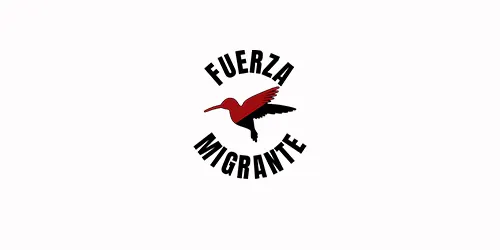
Workers who come to British Columbia from other countries are subject to the same laws that apply to locals.
People from all over the world discover opportunities to live and work in British Columbia. In fact, the province’s economy relies heavily on migrant workers. If you’re considering coming to work in BC, these tips can help you prepare for and settle into a job.
Some people from other countries drop briefly into British Columbia for short-term employment. Others working here apply to become permanent residents. Either way, there are government programs available to migrant workers.
You have options for coming to Canada to work
The federal government’s website explains your options for coming to Canada for work. Use this eligibility tool to see if you qualify to come as an immigrant, temporary resident or visitor.
If you come to BC for temporary work
Every year, employers in British Columbia depend on workers from abroad to meet their short-term needs. Without these workers, some sectors of the province’s economy would face serious challenges.
The Temporary Foreign Worker Program and the International Mobility Program permit eligible foreigners to work in Canada for a limited time, and help employers tap into this workforce. (Employers may need to show they can’t find Canadian workers to fill these job openings.) See our guidance on working in BC temporarily for more information.
If you immigrate to Canada
BC’s economy benefits from skilled workers. The BC Provincial Nominee Program helps skilled workers from other countries get permanent residence in BC.
There are two ways this program can serve such workers:
Skills Immigration: Helps skilled and semi-skilled workers in high-demand jobs in BC.
Entrepreneur Immigration: Helps high-net-worth people who aim to invest in and actively manage a business in BC.
If neither of these describes you, you may still be able to come to Canada through another program. For example:
Canadian Experience Class: Helps people with skilled work experience in Canada to become permanent residents.
Family sponsorship: Allows citizens and permanent residents over 18 years of age to sponsor certain types of relatives to come to Canada.
Watch for immigration scams
If you’re immigrating to Canada, you can hire an immigration consultant or lawyer, though the law doesn’t require you to do so. If you choose to do so, watch out for immigration scams. The federal government has information on how to avoid being the victim of fraud and how to choose an immigration representative.
“I’m originally from the Philippines. Two years ago I moved to BC because my relatives live here. My English wasn’t great, and I didn’t have any Canadian work experience. After arriving, I contacted a settlement service. They helped me register in language classes, take a training course, and even look for jobs. I’ve been working as a mover for eight months now, and I feel very fortunate.”
– John Carlo, Surrey, BC

In BC, community and government organizations assist people new to Canada. These settlement services can answer questions about living and working here. They can help with:
language assessments and classes
finding a job
finding a place to live and navigating other parts of daily life, such as filling out forms or applications
information about community services
Use this tool on the federal government’s website to search for settlement services near you.
Many community centres offer programs and facilities for newcomers to Canada, usually in a variety of languages. Try searching online to find a community centre near you, or ask your settlement service agency.
A neighbourhood house is similar to a community centre. Neighbourhood houses provide many programs and services in Metro Vancouver, and they’re open to everyone. Check out the Association of Neighbourhood Houses BC website to find one near you.
Programs for newcomers to BC
NewToBC works with libraries and immigrant service providers to offer programs for newcomers to BC. The NewToBC website includes immigrant settlement guides.
In most cases, you must have a job offer in place before you arrive in British Columbia. Here are some resources to check out before you leave your home country:
WorkBC job board. Offers a comprehensive database of jobs from across the province.
WelcomeBC career profiles. Includes information on dozens of occupations in BC, including wages, licensing requirements, and more.
BC’s Labour Market Outlook. Forecasts job opportunities in BC’s labour market over the next few years, and outlines the skills and education needed for them.
For more resources like these, see the provincial government’s website.
To kickstart your job search, you might also try these measures:
Check the online job listings or classified sections of local and national newspapers.
Reach out to the employment departments of the organizations you’d like to work for.
Ask friends or family in BC for leads.
Explore volunteer opportunities to help you get Canadian work experience.
Visit the Skilled Immigrant InfoCentre for employment programs and information.
Before you start looking for work, you may need to have your credentials assessed if you wish to immigrate under any of the skilled worker or provincial nominee programs.
A credentials assessment will look at any accreditations you got outside Canada, such as:
education
work experience
professional credentials
This assessment will give potential employers an idea of the kind of work you’re qualified to do. It’ll also reveal if your credentials meet the standards set for Canadian workers. If they don’t, you may need to pursue more training, education or Canadian work experience.
Sharpen your linguistic skills
No matter what type of job you’re looking for, make sure you can speak and understand the language. Basic linguistic skills to navigate in a new country are the bare minimum. To land the job you want may require a higher level of proficiency. See this page on improving your English and French.
Most migrant workers need a work permit to be legally employed in Canada.
There are two types of work permits:
An employer-specific work permit sets the conditions of your permit, including:
the name of the employer you can work for
how long you can work
the location where you can work (if applicable)
the job you may work in
An open work permit allows you to work for any employer in Canada (with some exceptions). Find out if you’re eligible to apply for an open work permit.
Use this tool to find out if you need to apply for a work permit.
See also our guidance on working in BC temporarily and extending your work permit.
A social insurance number (SIN) is a nine-digit number you need to work legally in Canada, or to access government programs and benefits. A SIN is issued, for life, to one person only. It can’t be used by anyone else.
You may be eligible to apply for a SIN if you are:
a Canadian citizen,
a permanent resident, or
a temporary resident.
Children 12 years of age or older can apply for their own SIN. The parents or legal guardians of children under the age of majority (19 in BC) can also apply for a SIN on the child’s behalf.
To apply for a SIN, you must present a valid primary document, such as a birth certificate, that proves your identity and legal status in Canada. You may also need to provide supporting documents if the name you currently use is different than the one on your primary document.
The federal government’s website explains eligibility and how to apply for a SIN.
Take steps to protect your SIN
Your SIN is your most important piece of personal identification. Take steps to protect it. Otherwise, you could end up being the victim of fraud or theft. The federal government’s website provides some tips on protecting your SIN and knowing when to give it out.



